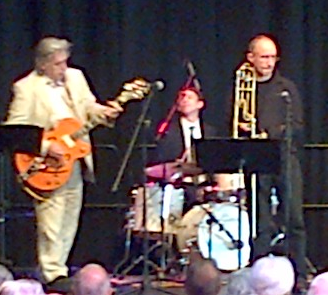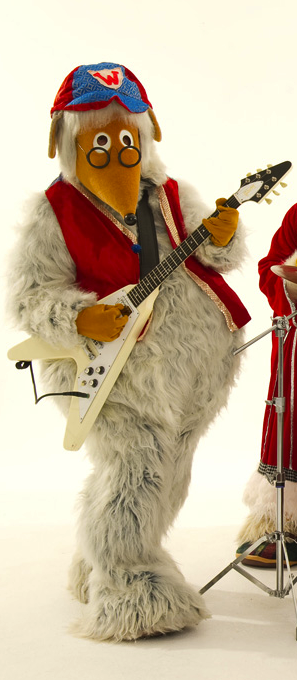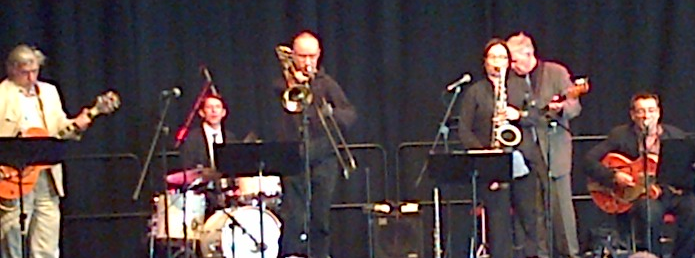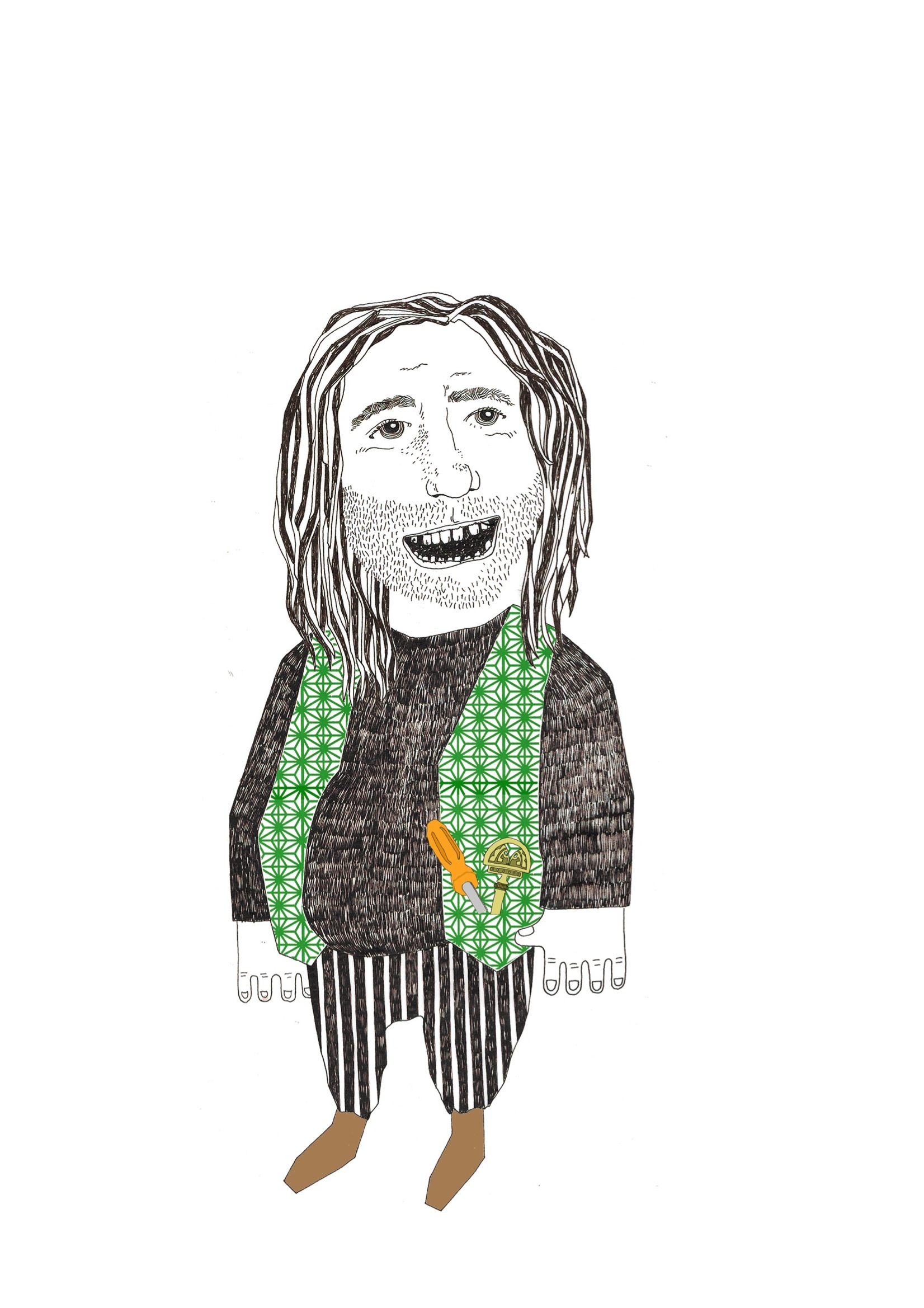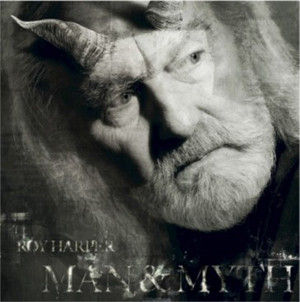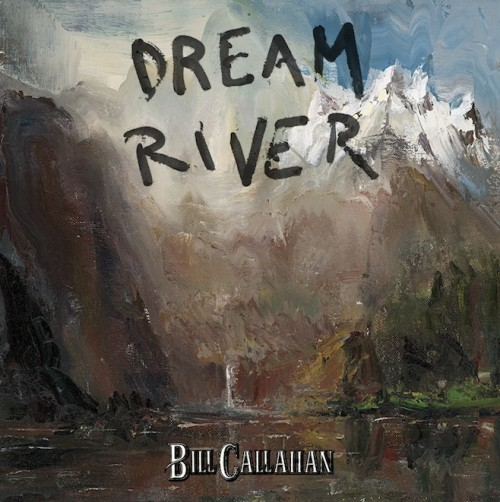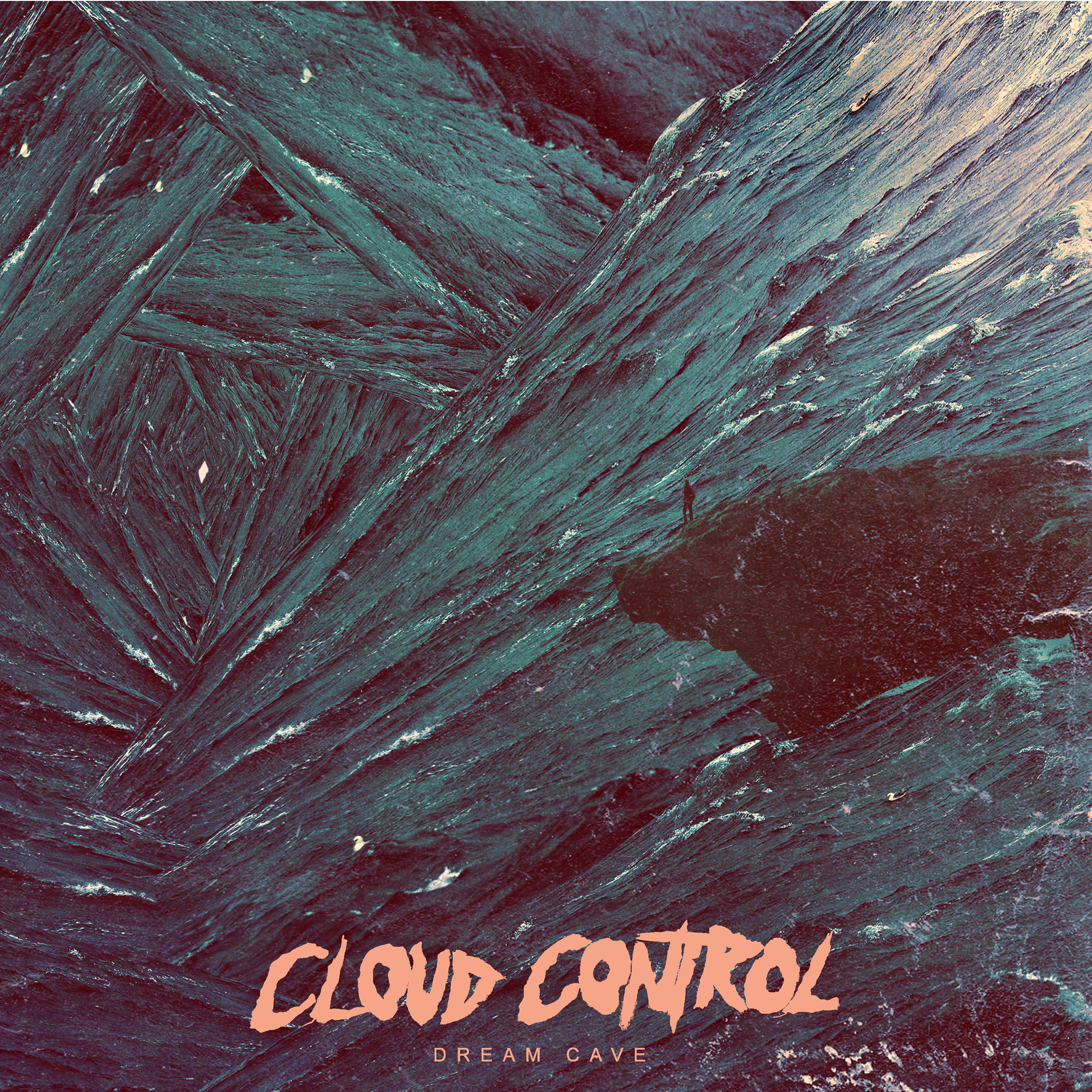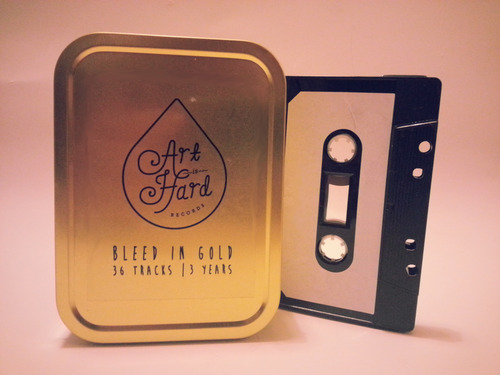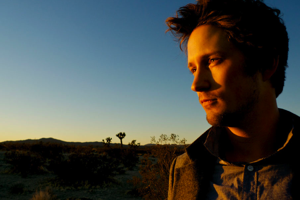 'You have to develop a comfort level for not knowing if you're going somewhere correct and if you're doing the right thing, and be OK with it. I don't think I always am, but at my best... you know, this tour makes me feel OK with the mystery.'
'You have to develop a comfort level for not knowing if you're going somewhere correct and if you're doing the right thing, and be OK with it. I don't think I always am, but at my best... you know, this tour makes me feel OK with the mystery.'
I'm talking to Del Barber at The Troubadour, a small club in London's Earls Court, where he's rounding off a UK tour opening for ex-Del Amitri Justin Currie with a solo showcase, before flying home to Winnipeg next day.
'Being in relationship to the possibility that you're not going to make a go of it – that's a good tension to maintain. I want to be open to the idea that it could dry up, to feel a sense of peace about that. But I'm never going to stop playing; I'm never going to stop recording.'
The tour with Currie has clearly has gone well, with full houses and receptive audiences. But I've prompted a reflective mood, having noted that Del turns thirty next month, and we're musing on the difficulty in today's music business of knowing if you're doing as well as you need to. He's frank about the challenge and has seen friends chewed up and spat out by the way the industry has developed. But underlying all he says, somewhere beneath an attractive modesty and occasional bursts of self-deprecation, is a quiet confidence in what he's doing. He's well-grounded, articulate and self-aware.
'It is a moment for me. I never decided to become a songwriter, I never thought "this is what I'm going to do"... then, coming up thirty, I guess I've got to make a go of this or do something else: piss or get off the pot.'
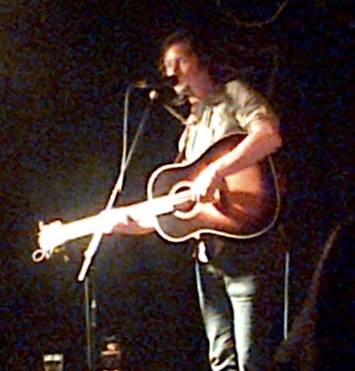 I reassure him that the pot already contains some pretty impressive evidence. There are three albums so far –Where The City Ends (2009), Love Songs For The Last Twenty (2010) and Headwaters (2012) – with a clear sense of progression between them: a growing confidence in his writing, a more consistent and assured authorial voice.
I reassure him that the pot already contains some pretty impressive evidence. There are three albums so far –Where The City Ends (2009), Love Songs For The Last Twenty (2010) and Headwaters (2012) – with a clear sense of progression between them: a growing confidence in his writing, a more consistent and assured authorial voice.
We talk about how the songs get written – inspiration vs. perspiration: 'I want to see writing as a practice,' he says, 'so I'm constantly writing. Most of it's garbage, but it's just a matter of practising that muscle'. He tries to write something every day, 'even if it's describing one character, one waitress, one haircut... to get better at it, I have to be doing it all the time. It's not a bolt of lightning, I don't think.'
As we talk, I've been commenting on the imagery and overall mood of Headwaters, with titles like 'Running On A Wire', 'Can't Turn Round' and 'Everything Is Not Enough' – a sense of nervous energy, hard work and a will to succeed. We then focus on 'The Waitress', one of its strongest songs, a portrait of a woman of a certain age, disappointed, trapped in her job in a diner. (Something of a more roundly realised second cousin to Neil Young's 'Unknown Legend', perhaps...) Is there a wider point there, I ask, in that song's place amongst the rest of the album's push and commitment, a pause for reflection that maybe sometimes people end up in the wrong place, despite all their best efforts?
'Absolutely. Definitely. Every single song, even the ones that are driven by the royal "I" and what I'm trying to say, I'm also hoping to see other people in the narrative. It's the same with the character-driven songs like 'The Waitress': I definitely want it to be more than empathetic. I definitely think I sing that song from my perspective as equally as hers.'
He plays a nice fingerstyle guitar and his singing voice has always been a strength – high, clear, expressive. I put it to him that, alongside his musical chops, he now knows how to work an audience well. I say that when I saw him on the main stage at the Canmore festival last month he'd had 5000 people rapt, in the palm of his hand. 'They made it so easy for me that night', is the first, slightly embarrassed response, but then he reflects more strongly: 'Trying to suss out what they want to hear and where I'm at, in Alberta that's really easy for me. But when I come over here I think "these songs aren't going to work" but then they end up being really great and I get a sense of the life in the songs, because I'm able to defeat some of the doubts.'
I also recall a wonderful workshop at Canmore, where he appeared with Oliver Swain's Big Machine and Ben Sollee. Would he like to be playing live with a band more regularly? 'That was strange. I was really worried I was going to be in the wrong place because these bands musically are risk-takers and I'm generally not. I want people to know the chord changes as they come up.'
That aside, he enjoys playing with his friends back home and there's a great band sound on all his records. But there is also a definite appeal for Del in touring solo, and not just from an economic perspective: 'I like being able to come into town alone – the disposition that puts me in to meet people and properly engage. And to lean on the story-telling aspect of the songwriting rather than creating an aesthetic or a sound. I really like bands that do that, but I definitely want people to know who I am more based on narrative than sound.'
There's a line in Del's song 'Hen House Manifesto' that comes back to me as I take in both the warmth of the attachments he describes and the clarity of his analysis of them: 'I got a blue collar heart and a white collar mind'.
He's clearly grounded in the Manitoba landscape and community that he grew up in and gets back to whenever he can. (The first job he's got to do when he gets home, he tells the Troubadour audience later, is to help out a farmer friend who's got behind with things.) 'Writing about people on the prairie,' he says to me, 'I feel indebted to that landscape.' When I comment that it's good to hear Canadian artists put a distinctive twist on what can sometimes be generic Americana, he agrees: 'I like it when artists aren't afraid to be specific, aren't afraid to be from somewhere. There's always a tendency to want to write songs that are accessible and sometimes you have to do it in the exact opposite way from saying universal things: you have to say specific things and have those little stories point to universal things.'
And, still on the subject of white collar minds, I ask about his Wikipedia entry which features studying theology and philosophy, including stints at both Covenant Bible College and Canadian Mennonite University. Wry laughter follows: it's 'not uncorrect' but the wrong emphasis has been put on some particular facts – and now Wikipedia won't change the entry because 'they won't believe that I am me'. It's a good talking point though, he says. His UK tour manager had been wondering if he was going to be 'some rightwing outrageous evangelical', but he is 'not by any stretch a practising believer'.
If nothing else, he got a good song out of those philosophical studies. 'The Party Song' from his first album, which he plays later, pitches together in a 'cheese dream' dinner party a bizarre panoply of characters from Jesus to Nietzsche and Dionysus to Bob Dylan. It is well worth quoting, and well worth seeking out for juxtapositions and rhymes like:
Jesus sat at the table, drinking wine with Dionysus,
Judas arguing with Apollo about what the meaning of life is...
followed by an irresistibly optimistic chorus:
...I'm tired of taking life so seriously.
I've been staring up her skirt so long at her black underwear.
She used to take me for a sucker now she's taking me upstairs.
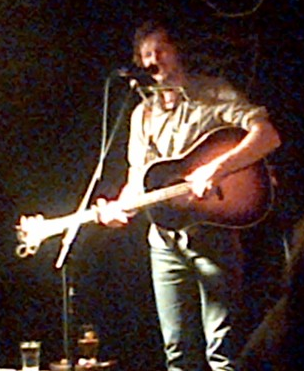 The gig that follows our conversation is strong. There's a lot of space for stories to bring the songs to life. Like the business he and a friend had at school selling individual pages from pin-up magazines for $5 a time. Of course, the Internet has ruined that business model now, as it has some others... He also plays a gorgeous version of 'The Waitress' and closes, as in Canmore, with Neil's 'Harvest Moon'.
The gig that follows our conversation is strong. There's a lot of space for stories to bring the songs to life. Like the business he and a friend had at school selling individual pages from pin-up magazines for $5 a time. Of course, the Internet has ruined that business model now, as it has some others... He also plays a gorgeous version of 'The Waitress' and closes, as in Canmore, with Neil's 'Harvest Moon'.
In music today there is absolutely no certainty about who can make a reliable living and whose talent will be rewarded, but I think Del Barber has both the skills and the right attitude to survive and prosper as things are now. He knows how to work an audience and he knows how to write a song.
As 'Believe Me' from Headwaters puts it:
Believe me, oh, believe me,
I am a freight train climbing up a western range.
Believe me, oh, believe me
When I say I'm on my way.
I await the next installment with interest: apparently a fourth album is nearly there. Once those immediate agricultural duties back in Manitoba are fulfilled, mixing it will be the next task.
 Thursday, October 3, 2013 at 9:16PM
Thursday, October 3, 2013 at 9:16PM  Pete |
Pete |  Post a Comment |
Post a Comment | 